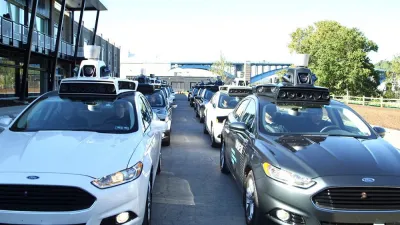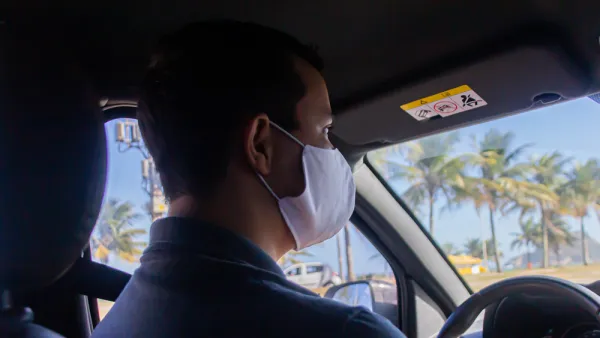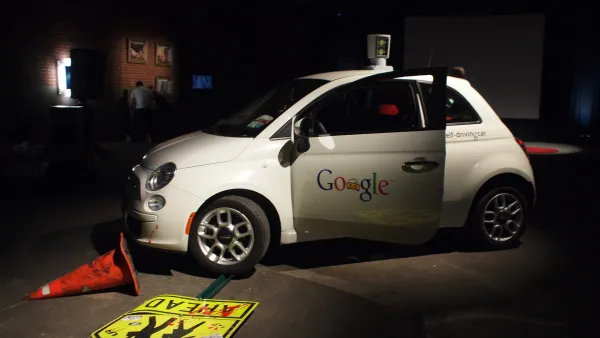In the wake of a high-profile (and fatal) accident involving an autonomous Uber car, the safety debate is trending. But the broader economic picture still points to a future of shared driverless rides.

After an Uber self-driving prototype struck and killed a pedestrian in Arizona, the company has suspended test operations in other cities. But according to this piece from the Economist, self-drivers will likely hit the streets as fleets of "robotaxis" in the Uber vein, not as privately-owned vehicles. That is, if the technology can be made safe enough.
"Although today's experimental vehicles are modified versions of ordinary cars, with steering wheels that eerily turn by themselves, future AVs will have no steering wheel or pedals and will come in all sorts of shapes and sizes; pods capable of carrying six or eight people may prove to be the most efficient design."
The economic argument here is that robotaxis can earn for most of the day, while private vehicles sit idle most of the time. "The initial deployment of self-driving vehicles as robotaxis makes sense because they only need to work within a particular area—and because the sensors needed for a fully autonomous AV to sense its surroundings and figure out how to respond currently cost more than the vehicle itself."
The piece conjectures that in several decades, robotaxis will account for the majority of urban miles travelled. That'll open up plenty of land currently used for parking. "Eventually, perhaps by 2030 or so, the cost of sensors will fall and it will no longer be prohibitively expensive to buy your own self-driving vehicle. The question then is whether you would want to."
FULL STORY: Why driverless cars will mostly be shared, not owned

Analysis: Cybertruck Fatality Rate Far Exceeds That of Ford Pinto
The Tesla Cybertruck was recalled seven times last year.

National Parks Layoffs Will Cause Communities to Lose Billions
Thousands of essential park workers were laid off this week, just before the busy spring break season.

Retro-silient?: America’s First “Eco-burb,” The Woodlands Turns 50
A master-planned community north of Houston offers lessons on green infrastructure and resilient design, but falls short of its founder’s lofty affordability and walkability goals.

Test News Post 1
This is a summary

Analysis: Cybertruck Fatality Rate Far Exceeds That of Ford Pinto
The Tesla Cybertruck was recalled seven times last year.

Test News Headline 46
Test for the image on the front page.
Urban Design for Planners 1: Software Tools
This six-course series explores essential urban design concepts using open source software and equips planners with the tools they need to participate fully in the urban design process.
Planning for Universal Design
Learn the tools for implementing Universal Design in planning regulations.
EMC Planning Group, Inc.
Planetizen
Planetizen
Mpact (formerly Rail~Volution)
Great Falls Development Authority, Inc.
HUDs Office of Policy Development and Research
NYU Wagner Graduate School of Public Service




























